
Hopes that Gov. Glenn Youngkin might sign a bill legalizing retail sales of marijuana in Virginia faded fast this week as Democrats blocked one of the governor’s top priorities: the plan to bring a professional sports arena to Northern Virginia.
As recently as Wednesday, according to multiple Capitol sources, the cannabis bill was being raised in closed-door budget talks with the governor as one of several Democratic priorities that could conceivably have been part of a package deal with the arena.
But the prospects of a grand policy bargain appeared to collapse Thursday as Democrats revealed a budget proposal without Youngkin’s arena plan, prompting the governor to say he was less inclined to look favorably on Democratic priorities. In a news conference (link added by FFXnow) on the Capitol steps, Youngkin said the arena deal Senate Democrats rejected involved up to 30,000 jobs and $12 billion in economic impact.
“And, bluntly, you want to talk about putting a cannabis shop on every corner?” Youngkin said. “I don’t quite get it.”
The governor said several other topics had been part of an “overall discussion” with Democrats. However, he suggested the rejection of an economic development project that could’ve drawn bipartisan support isn’t going to make him more likely to approve bills that passed mostly along party lines.
“I think this really sets us meaningfully back,” Youngkin said.
Del. Paul Krizek, D-Alexandria, a key sponsor of the marijuana proposal, said hopes for the bill were not high.
“As those great philosophers Tommy Chong and Cheech Marin would say, ‘It’s up in smoke,’” Krizek said.
Senate Majority Leader Scott Surovell, D-Fairfax, pointed to Youngkin’s comments on cannabis as evidence that it’s the governor who’s refusing to budge on issues that have popular support.
“He just basically flat out said one of our biggest priorities he’s not willing to consider,” Surovell said. “This governor wants to set the terms of every single negotiation as if he’s the sole arbiter of what’s reasonable in a bipartisan environment. That’s just not how it works. … If he wants something, he’s got to give us something.”
Youngkin can’t veto the marijuana bill immediately, because it technically hasn’t been sent to him yet. After this week’s developments, it may only be a matter of time. Youngkin said again Thursday that he doesn’t have “any interest” in greenlighting a retail marijuana market during his four-year term.
He has just under two years remaining, and if Democrats retake the Executive Mansion in 2025, the bill sent to Youngkin this year could potentially be the starting point for future legislative efforts. Read More
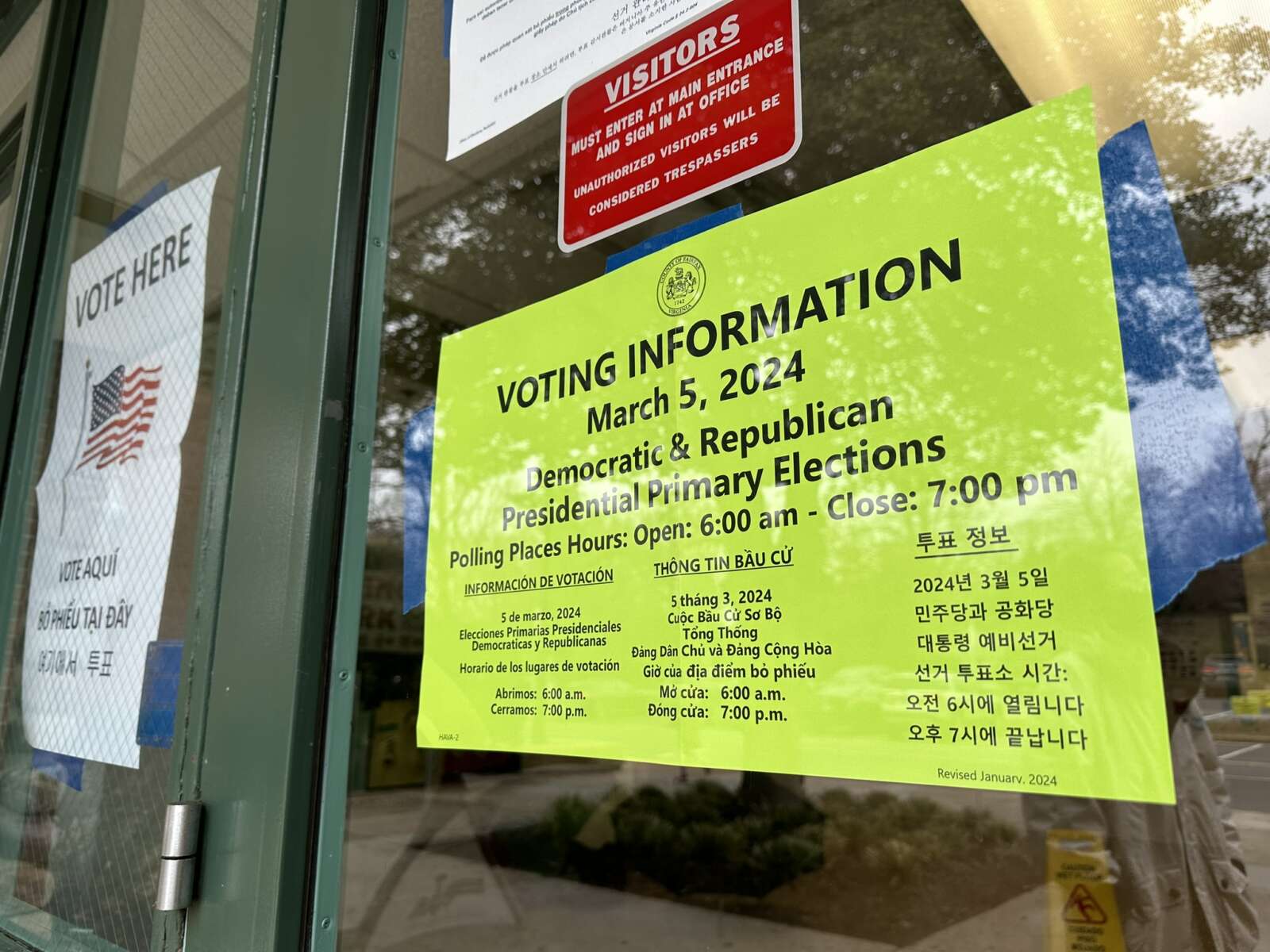
Perhaps Nikki Haley’s rally in Idylwood last week made a difference after all.
In yesterday’s Republican presidential primary, the former South Carolina governor won more support from Fairfax County voters than frontrunner Donald Trump, though she trailed the one-time president by a sizable margin in Virginia overall.
According to preliminary results from the Fairfax County Office of Elections, Haley received 48,007 votes (57%) compared to Trump’s 33,752 votes (40%). The four other candidates on the Republican ballot combined for 2,038 votes, though none of them were seeking the nomination anymore.
Chris Christie and Vivek Ramaswamy left the race before early voting started in January, while Texas pastor Ryan Binkley suspended his campaign in February. Florida Gov. Ron DeSantis, who dropped out and endorsed Trump on Jan. 21, led the also-rans with 923 votes, including 771 that were cast yesterday (Tuesday).
In total, 83,797 ballots were cast in Fairfax County’s Republican primary — a roughly 10.6% turnout. The vast majority of votes (72,238) came in the day of the primary, though mail ballots will be counted until noon on Friday (March 8) as long as they were postmarked on or before election day.
As of this morning, Trump has drawn 63.3% of the vote in Virginia’s Republican primary, getting 33 delegates as part of a Super Tuesday haul that puts him close to the 1,215 delegates needed to secure the GOP nomination. With 34.6% of the Virginia vote, Haley gained six delegates, but after trailing in all of yesterday’s primaries except for Vermont, she announced today (Wednesday) that she will end her campaign.
Biden prevails in Democratic primary
Over in the Democratic primary, President Joe Biden garnered nearly 89% of votes in Virginia, including 51,612 (86.6%) of the 59,812 votes cast in Fairfax County, according to unofficial results.
The Fairfax County Democratic Committee said it was “thrilled with last night’s outcomes” in both the Democratic and Republican contests.
“With President Biden’s sweep in Virginia we are committed to keep the commonwealth blue as we head into the November election,” the FCDC said. “We are further heartened by the significant loss of Former President Trump in Fairfax County as it underscores local rejection of the divisive politics employed by his and Glenn Youngkin’s party.”
Though no serious primary challengers to the sitting president emerged, Marianne Williamson received 5,989 votes in Fairfax County, and Minnesota Rep. Dean Phillips got 2,211 votes.
It’s unclear why voters cast ballots for those candidates, but in some states, activists have urged Democrats to withhold their vote from Biden to protest his handling of Israel’s war on Gaza. A Listen to Virginia Coalition, a spin-off of the original “Listen to Michigan” campaign, asked voters to cast ballots for Williamson instead, since Virginia doesn’t have an “uncommitted” or write-in option.
Biden has been allocated 1,497 delegates so far and needs 1,967 to officially win the Democratic nomination, which will be determined at the Democratic National Convention in Chicago, Illinois, on Aug. 19-22. The Republican National Convention is scheduled for July 15-18 in Milwaukee, Wisconsin.
Fairfax County saw a total turnout of 18.15% for yesterday’s primaries, a decline from the 34.2% of voters who participated in the last Democratic presidential primary in March 2020. The most recent Republican presidential primary was in March 2016 and had a 20.8% turnout.
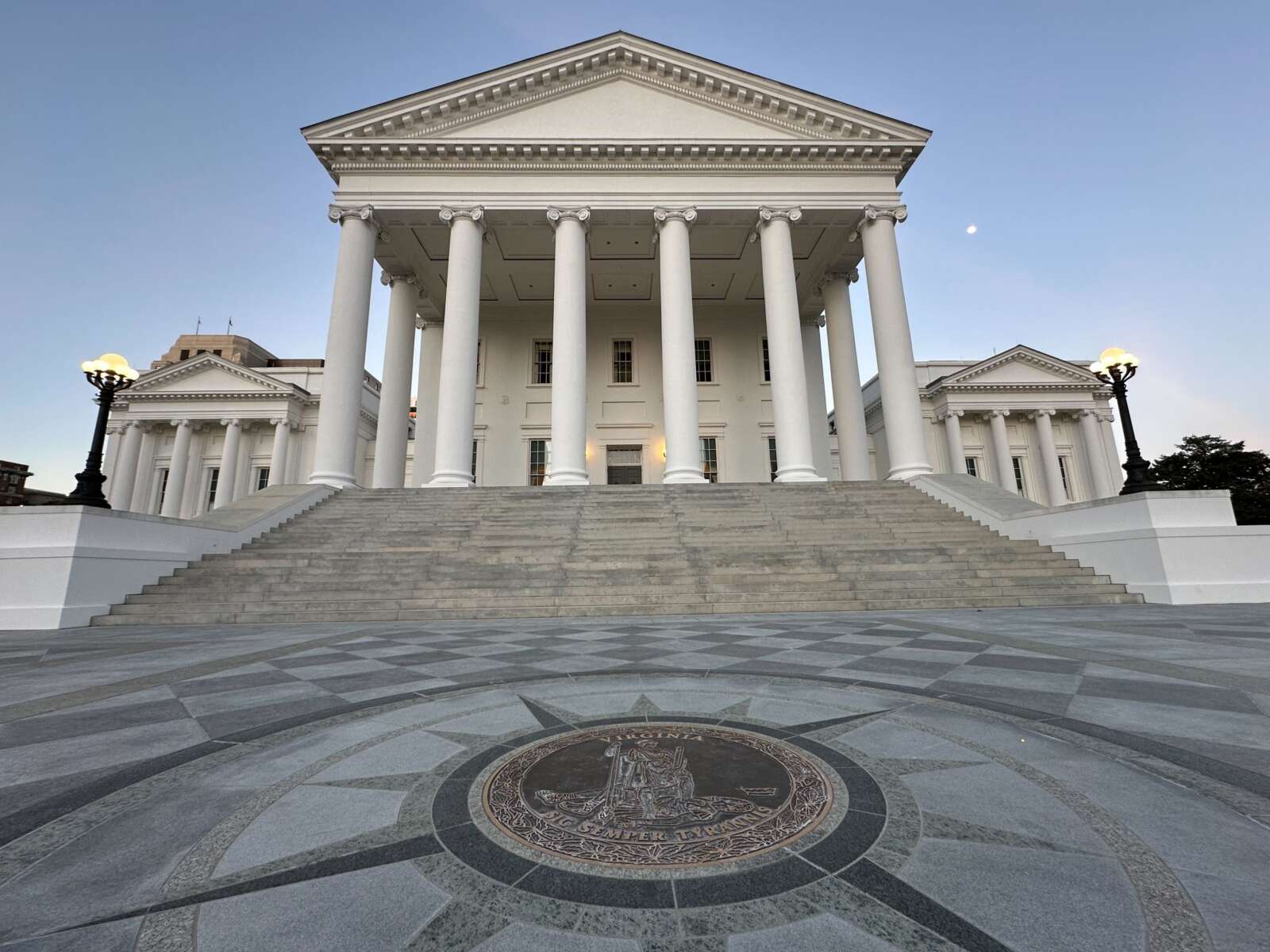
Without taking a recorded vote, a Virginia House of Delegates committee on Wednesday [Feb. 27] again blocked legislation that would bring the state in line with the rest of the country by banning the personal use of campaign funds.
By a voice vote, the House Appropriations Committee chose to continue the bill until the 2025 General Assembly session.
“It is our hope that during the course of the 2025 session that both Senator Boysko and Delegate Simon will be able to come back to us and bring us a piece of legislation that not only do I want to see passed out but the speaker would like to see passed out as well,” said House Appropriations Chairman Luke Torian, D-Prince William.
He was referring to Sen. Jennifer Boysko, D-Fairfax, and Del. Marcus Simon, D-Fairfax, who were spearheading efforts (link added by FFXnow) to craft a law that would clarify campaign funds have to be used for legitimate political activity and cannot be used on personal expenses such as mortgage payments, school tuition, vacations, clothing and cars.
Torian’s committee did not docket Simon’s bill earlier in the session. Boysko’s bill had passed the state Senate 35-4, and Wednesday’s hearing was a do-or-die moment for her version as lawmakers prepare to wrap up the session [this] week.
Del. Mark Sickles, D-Fairfax, said he would “reluctantly” second the motion to punt the bill to 2025.
The proposed ban, which has been blocked for years, is pitched as a basic good government measure that would prevent politicians from funding their personal lives with money given to them by corporations and wealthy donors.
Previous promises to work on the issue at a later date haven’t been borne out.
In 2021, the General Assembly created a special subcommittee to study campaign finance reform, and the personal use ban was considered one of its top priorities. That subcommittee barely met in 2021. The legislature re-upped it for another year, but the panel never held a meeting in 2022.
The subcommittee — which never produced a final report — is now listed as inactive.
This article was reported and written by the Virginia Mercury, and has been reprinted under a Creative Commons license.
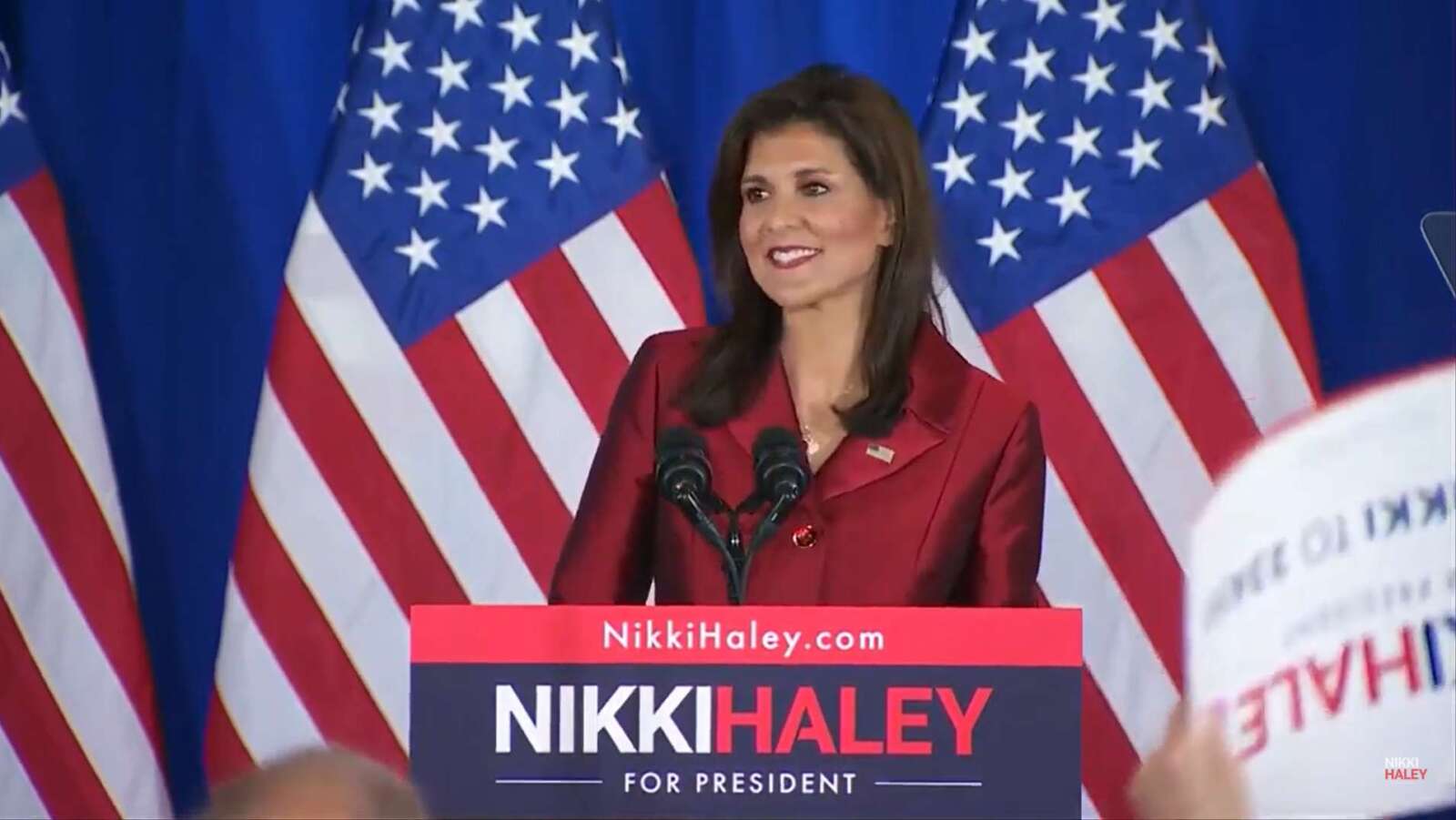
With Virginia’s presidential primary elections just around the corner, one candidate is hoping to whip up some support in Fairfax County before polls open next Tuesday (March 5).
Former South Carolina governor Nikki Haley will hold a rally at The Westin Tysons Corner (7801 Leesburg Pike) in Idylwood at 7 p.m. tonight (Thursday). It will be her second event in the state today after she visited Richmond at 12:30 p.m.
Haley is the only candidate left challenging former president Donald Trump for the Republican nomination, though the ballot features several also-rans like Florida Gov. Ron DeSantis and entrepreneur Vivek Ramaswamy who dropped out after qualifying.
Despite getting embroiled in multiple court battles, including an election interference trial where he’s claiming immunity from prosecution, Trump has emerged as a clear frontrunner in the GOP race, winning every state that has voted so far. Haley has managed to get 20 delegates to her opponent’s 110, according to NBC News.
The Democratic Party will also hold a primary on Tuesday. President Joe Biden is the presumed nominee, but Dean Benson Phillips, a Congressional representative for Minnesota, and Marianne Williamson, who recently unsuspended her campaign, will also appear on the ballot.
Early voting is currently underway in Fairfax County. Fifteen in-person sites are open until 5 p.m. this Saturday (March 2), though the deadline for requesting a mail ballot has passed.
Image via Nikki Haley/YouTube
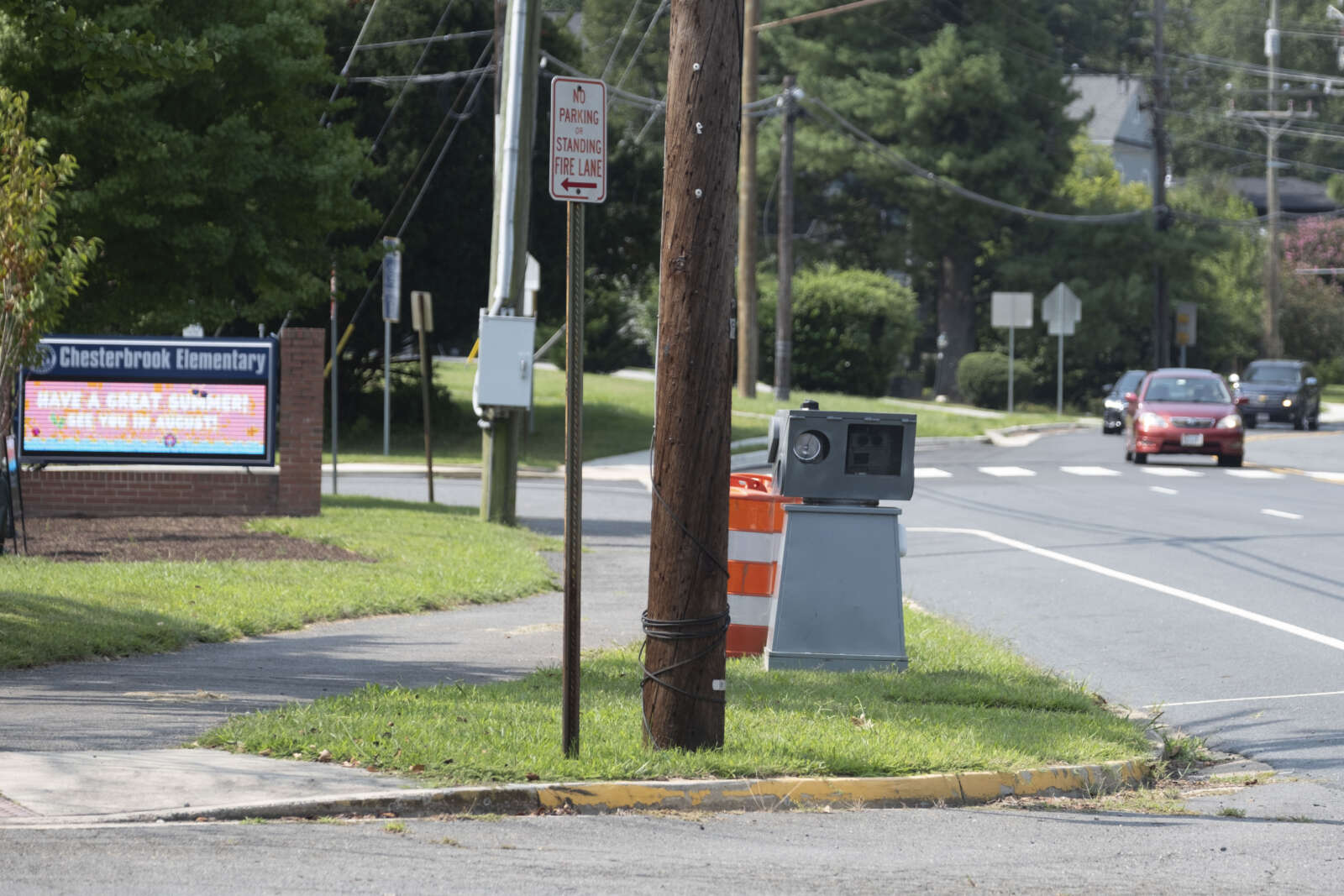
As the Virginia General Assembly reaches its deadline for legislators to file bills for the 2024 session, Fairfax County’s representatives hope to pass bills on rent gouging, campaign finance reform and opioid prevention in schools.
The General Assembly convened in Richmond last Wednesday (Jan. 10) for a 60-day session ending March 9. With Democrats controlling the House of Delegates and the Senate, lawmakers could see at least some of their proposals become law. Here are some notable measures put forward:
Local anti-rent gouging authority: SB 366 would allow any locality to adopt provisions that prevent landlords from significantly raising rents and require them to notify tenants two months before an increase. The bill, sponsored by Sen. Jennifer Boysko (D-33), would require notice and a public hearing prior to adopting any legislation.
Transportation
- Expanding the use of speed cameras: The identical bills HB 20 and HB 905 would allow local governments to install speed cameras in “any location deemed necessary.” Introduced by Del. Mike Jones (D-77) and Irene Shin (D-8), the legislation would allow for penalties up to $100.
- Funding for electric vehicle charging stations: Introduced by Sen. David Marsden (D-37), SB 457 would create a Driving Decarbonization Program and Fund to help developers cover some costs associated with installing electric vehicle charging stations.
- Towing fee regulations: SB 450, also from Marsden, tells the State Corporation Commission to analyze current regulations of towing fees “and identify policy options for the commission to assume all or part of such regulation.” The proposal requires the SCC to report its findings to the General Assembly by Nov. 30, 2024.
Special grand juries: Sponsored by Del. Karen Keys-Gamarra (D-7), HB 167 requires a circuit court to impanel a special grand jury when a law enforcement or correctional officer kills an unarmed person. The bill also directs the court to appoint a special prosecutor who can be present during an investigation and interrogate witnesses if requested by the special grand jury. Last year, a special grand jury indicted the Fairfax County police officer who fatally shot Timothy Johnson in Tysons.
Prohibited personal use of campaign funds: HB 40 “prohibits any person from converting contributions to a candidate or his campaign committee to personal use.” The bill from Del. Marcus Simon (D-53) lets any individual subject to the ban request an advisory opinion from the State Board of Elections. It advanced out of a subcommittee on Wednesday (Jan. 17) with amendments.
Education
- Tax to support schools: Sponsored by Sen. Jeremy McPike (D-29), SB 14 would authorize all counties and cities to impose an additional local sales and use tax of no more than 1% to fund the construction and renovations of schools.
- Naloxone policies and requirements: SB 387, sponsored by Sen. Stella Pekarsky (D-36), requires each local school board to develop plans and policies for every public elementary and secondary school relating to opioid overdose prevention and reversal.
Invasive plants: HB 47 would require all retail sellers to provide signage identifying invasive plant species. The bill, sponsored by Del. Holly Seibold (D-35), would require the signs to say, “Plant with caution: invasive plant species. May cause environmental harm. Ask about alternatives.”
The deadline for state legislators to file bills with the clerk is 3 p.m. today (Friday).
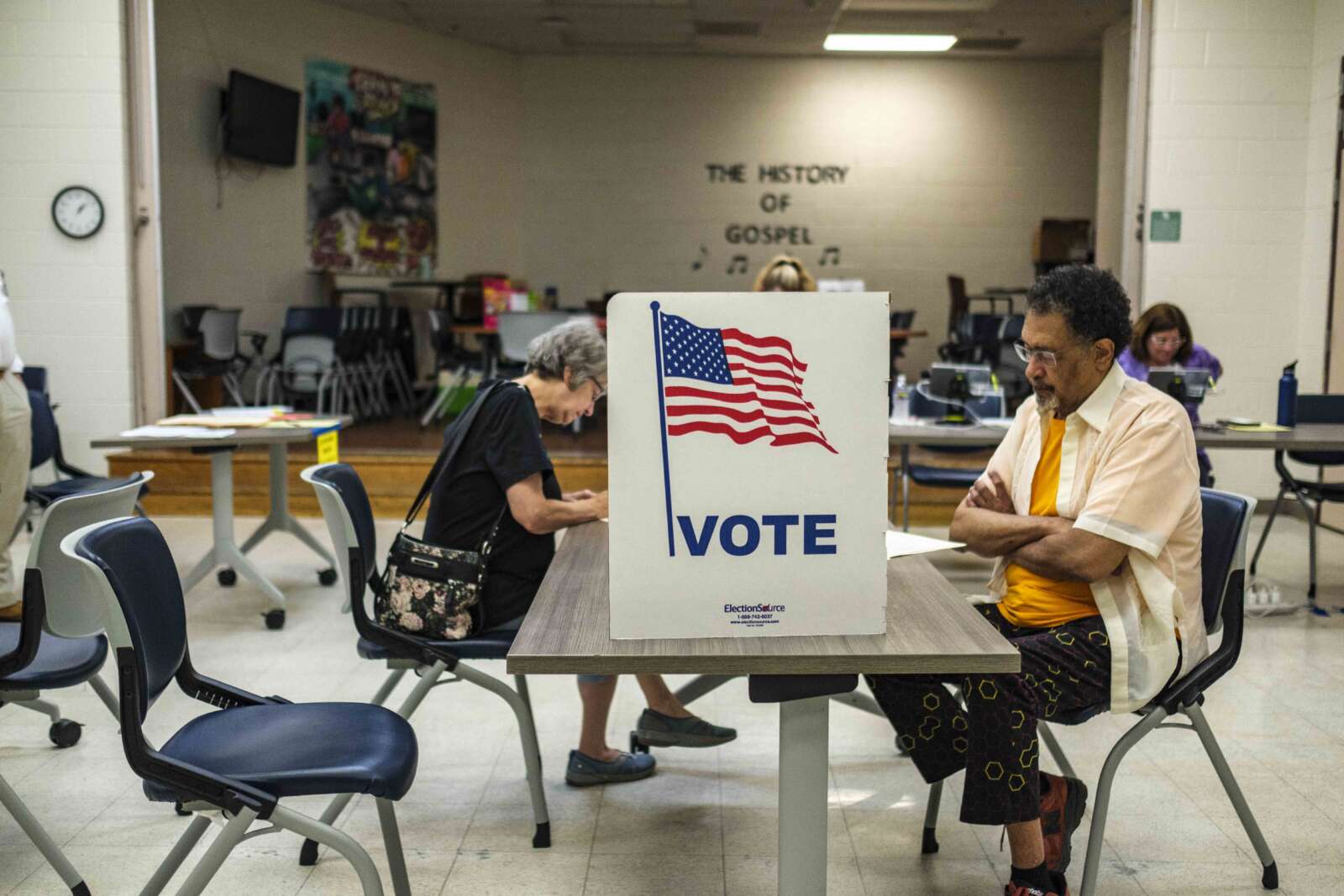
Updated at 10:15 a.m. on 1/19/2024 — With the county government closed due to snow, the start of early voting has been delayed to 9 a.m.-5 p.m. tomorrow (Saturday), the Fairfax County Office of Elections announced.
Earlier: Early voting for the 2024 presidential primary election is set to begin tomorrow (Friday) Saturday (Jan. 20) in Fairfax County, with local party officials and campaign strategists projecting varied voter turnout.
While the Fairfax County Democratic Committee (FCDC) anticipates a lower turnout among its members, at least one local Republican strategist expects a strong showing from Republican voters, particularly in support of former president and current GOP frontrunner Donald Trump.
“Donald Trump remains far and away the favorite candidate of Virginia Republicans, including Northern Virginia Republicans, as far as I can tell,” said Nathan Brinkman, founder of the political consulting firm Brinkman Media, whose prior clients include the Fairfax County Republican Committee, as well as other local candidates.
Starting this Friday, Jan. 19 next week, early voting will be available on weekdays at three key locations — the Fairfax, Mount Vernon, and North County government centers, according to the county’s election office.
Voters can cast their ballots at the Fairfax County Government Center from 8 a.m. to 4:30 p.m., while the Mount Vernon and North County centers will welcome voters from 1-7 p.m. There is also a 24-hour ballot drop-off box available outside the Fairfax County Government Center.
An additional 13 early voting sites are set to open starting Saturday, Feb. 24, from 1-7 p.m. Early voting will be offered on two Saturdays, including Feb. 24 and March 2, at all sites.
- Burke Centre Library
- Centreville Regional Library
- Franconia Governmental Center
- Great Falls Library
- Herndon-Fortnightly Library
- Jim Scott Community Center
- Lorton Community Center
- Mason Governmental Center
- McLean Governmental Center
- Sully Governmental Center
- Thomas Jefferson Library
- Tysons-Pimmit Regional Library
- West Springfield Governmental Center
Who’s on the ballot
As of today (Jan. 18), Virginia has the following Republican and Democratic presidential candidates on the ballot:
- Chris Christie (R)
- Ryan Binkley (R)
- Vivek Ramaswamy (R)
- Donald J. Trump (R)
- Gov. Ron DeSantis (R)
- Nikki Haley (R)
- President Joseph R. Biden, Jr. (D)
- Marianne Williamson (D)
- U.S. Rep. Dean Benson Phillips (D)
(Note: Republicans Chris Christie and Vivek Ramaswamy have suspended their respective campaigns, but neither candidate has officially withdrawn from the race in Virginia, according to the Virginia Department of Elections.) Read More
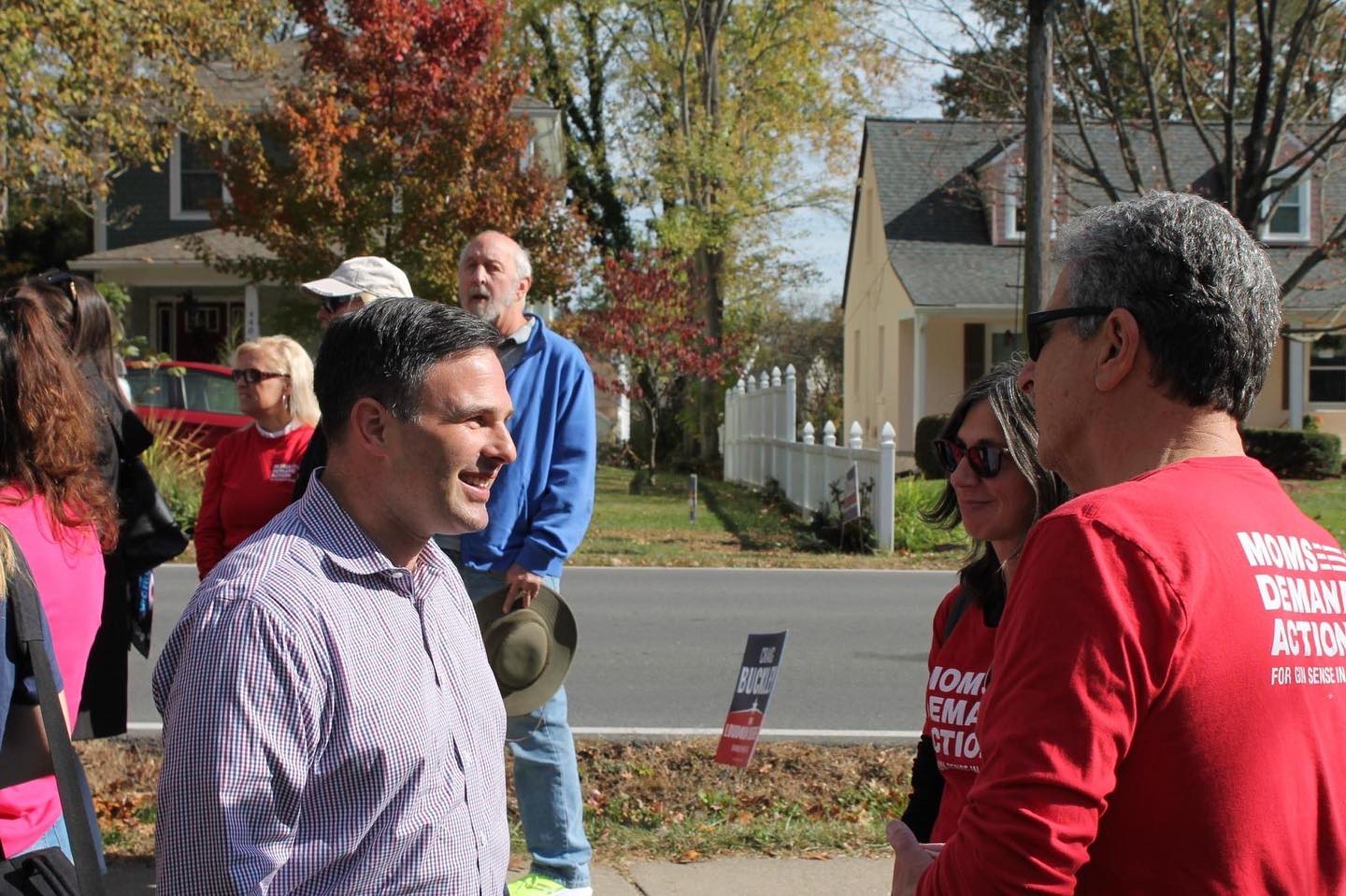
And then there were five.
Del. Dan Helmer of Fairfax County announced Wednesday morning that he is joining the race for the Democratic nomination in Virginia’s 10th Congressional District next year.
Helmer, a U.S. Army veteran who was first elected in 2019, led the House Democratic Caucus’ campaign effort this fall, which resulted in Democrats picking up three seats and regaining control of the chamber.
The 10th District is currently represented by Rep. Jennifer Wexton, a Democrat, but Wexton announced earlier this year she will not seek reelection for health reasons.
Other Democrats who have announced campaigns for the seat are:
- Current state Sen. Jennifer Boysko of Fairfax County
- Former Speaker of the House Eileen Filler-Corn
- Former Virginia Secretary of Education Atif Qarni
- Current Del. David Reid of Loudoun County
Loudoun Board of Supervisors Chair Phyllis Randall had been mentioned as a candidate, but she ruled out a run Tuesday, saying she wanted to focus on her third term as board chair.
The 10th District includes all of Loudoun County — making up more than half its voters — along with all of Fauquier and Rappahannock counties and the cities of Manassas and Manassas Park. It also includes the western half of Prince William County and about 15,000 voters in the Clifton and Union Mill areas of southern Fairfax County.
After knocking off Republican Barbara Comstock in 2018, Wexton won reelection to the newly drawn 10th District last year with about 53% of the vote, defeating Republican Hung Cao.
Helmer was reelected Tuesday to House District 10, defeating Republican Jim Thomas with over 58% of the vote. His district covers southwestern Fairfax, including the town of Clifton and the Centreville area. Before redistricting after the 2020 Census, he also represented a small portion of Prince William.
Helmer is the son of an immigrant and the grandson of refugees and Holocaust survivors, according to a news release from his campaign. He graduated from the U.S. Military Academy at West Point, and served tours in Iraq, Afghanistan and Korea. He currently owns a small business and continues to serve as a lieutenant colonel in the U.S. Army Reserve.
“My grandparents came to America to escape the Nazis,” Helmer said. “It’s why I volunteered to serve our country and protect the democracy that took us in. While I was proud to serve, I lost friends in Iraq and Afghanistan because politicians lacked the courage to stand up to President Bush’s misguided wars. Our democracy failed us.”
He said democracy faces greater threats today: “MAGA extremists are seeking to undermine free and fair elections and strip away the right to an abortion, all while coddling a gun lobby that floods our streets with weapons of war.”
According to the release, in the General Assembly, Helmer supported gun safety bills, the repeal of Virginia’s “Right to Work” laws and women’s healthcare.
He lives in Fairfax with his wife, Karen, a public school educator, and their two sons.
Photo via Dan Helmer/Facebook. This article was written by FFXnow’s news partner InsideNoVa.com and republished with permission. Sign up for InsideNoVa.com’s free email subscription today.
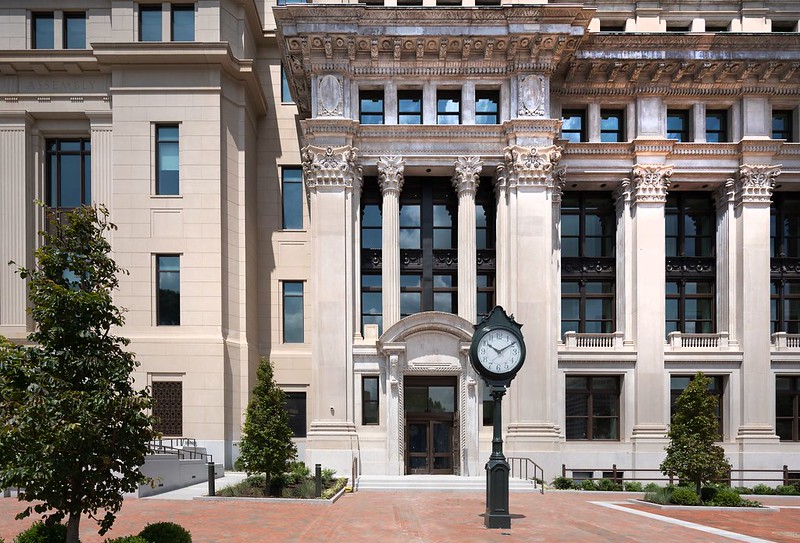
The two-year period before the arrival of Gov. Glenn Youngkin was the first time in decades that Democrats controlled both chambers of the Virginia General Assembly. Come January, they’ll be back in charge.
That sets up a policymaking dynamic that hasn’t been seen in Virginia since the 1990s: A Republican governor working with a fully Democratic legislature.
Because Youngkin will still be able to veto anything the slim Democratic majorities send to his desk, it won’t be anything like the burst of legislative breakthroughs on big topics that Democrats pushed through in 2020 and 2021. With a 21-19 majority in the state Senate and a 51-49 majority in the House of Delegates, Democrats lack the supermajorities needed to override vetoes and enact new laws over Youngkin’s opposition.
After a redistricting-fueled retirement boom earlier this year, more than a third of the candidates elected to General Assembly seats last week will be new to the body, adding a new element of unpredictability to how votes might shake out.
It’s unclear what might top the state’s legislative agenda once the new legislature is seated, but here’s a look at what last Tuesday’s results could mean for a few big policy issues.
A new push for abortion rights
It wasn’t a sure bet Republicans would have had the votes to pass Youngkin’s 15-week abortion ban even if they won majorities. But new limits on abortion are now a nonstarter after Democrats won on promises to stop them.
Winning both chambers gives Democrats the chance to play offense on abortion rights, and they don’t need the governor to do it.
At a post-election news conference last week, abortion rights advocates said they want the new Democratic majorities to begin the multi-year process of amending Virginia’s constitution to protect abortion access.
“Our victory on Tuesday allows us to work with these majorities to advance a constitutional amendment that will be on Virginia’s ballot in 2026 when we keep an abortion-rights majority in 2025,” said Jamie Lockhart, executive director of Planned Parenthood Advocates of Virginia.
Under Virginia’s system, constitutional amendments have to pass the General Assembly two years in a row, with an election in between. That means the General Assembly would have to pass an abortion rights amendment in the 2025 and 2026 sessions, with voters having the final say in the fall of 2026.
Though the Democratic-controlled Senate already passed an abortion rights amendment earlier this year that failed in the Republican-led House of Delegates, Lockhart indicated the amendment’s specifics could change now that Democrats have the ability to give it initial passage.
A similar abortion rights constitutional amendment that passed in Ohio this week included clear language allowing abortion limits past the point of fetal viability, usually around 24 weeks. The initial amendment proposed in Virginia didn’t mention fetal viability as a valid reason to restrict abortion access, leading critics to argue it could override Virginia’s existing law banning abortion in the third trimester. During the campaign season, many Democratic candidates said they wanted to keep Virginia’s abortion laws unchanged. Read More
(Updated at 10:55 a.m. on 11/10/2023) About 40% of registered Fairfax County voters participated in this year’s general election, which decided state and local representatives who will shape policies on issues from abortion to land use in the coming years.
As of Friday (Nov. 10), 308,855 of the county’s 787,171 registered voters cast a ballot — a 39.2% turnout rate, according to unofficial results from the Virginia Department of Elections.
(Correction: The Virginia Department of Elections results previously indicated that 382,573 ballots had been cast in the election, a 48.6% turnout rate. This story has been revised to reflect the updated numbers.)
That falls short of the 44.3% turnout and 315,836 ballots cast in 2019, when the Fairfax County Board of Supervisors, school board and all General Assembly seats were last up for grabs.
However, it still exceeds the turnout seen in earlier election cycles dating back to the beginning of this century, which hovered around 32% with a low of 30.3% in 2015, per county returns.
Eric Spicer, Fairfax County’s director of elections and general registrar, declined to comment on this year’s turnout numbers or speculate on “why they may differ from past years.”
The general election on Tuesday (Nov. 7) continued a trend of increased early voting that began after Virginia expanded absentee voting to all registered voters in 2020. This year, the county received 36,859 mail ballots on election night alone — more than the total number of absentee votes (36,584) in the 2019 general election.
There were 64,371 ballots cast through early voting, which ran from Sept. 22 to Saturday, Nov. 4, though the vast majority of voters still went to in-person polls on Election Day. Mail-in ballots will be counted until noon on Monday, Nov. 13, as long as they were postmarked on or before Nov. 7.
All election results, including for the still-to-be-determined Vienna Town council race, will be certified as final on Tuesday, Nov. 14.
Democrats celebrate near-sweep
The status quo largely held in Fairfax County, at least in terms of political parties, as candidates endorsed by the Democrats won every state contest and almost every local contest on the ballot.
Sheriff Stacey Kincaid and Commonwealth’s Attorney Steve Descano were both reelected with no official challengers, though Descano’s opponent for the Democratic nomination, Ed Nuttall, endorsed a write-in campaign.
Descano’s victory was matched in Arlington by Parisa Dehghani-Tafti, who also first took office in 2020 on promises of criminal justice reform. Their Loudoun County counterpart, Buta Biberaj, however, is trailing by around 1,000 votes.
“Thank you to the people of Fairfax County for choosing me to serve another four years,” Descano said in a statement highlighting his reform efforts. “…I’ve still got a lot of fight in me — and we’ve got the momentum on our side. I’m eager to keep working for the people of Fairfax, and to realize a future where safety and justice do walk hand-in-hand.”
I've still got a lot of fight in me — and we've got the momentum on our side. I'm eager to keep working for the people of Fairfax, and to realize a future where safety and justice do walk hand-in-hand.
— Steve Descano (@SteveDescano) November 8, 2023
Chris Falcon, a deputy clerk for the Arlington Circuit Court, defeated retiring Fairfax County Circuit Court Clerk John Frey’s chief deputy clerk and chosen successor, Gerarda Culipher, with nearly 63% of the vote. Falcon has pledged to make circuit court cases accessible through Virginia’s statewide case information system.
With Democrats set to control both the state Senate and House of Delegates, the Fairfax County Democratic Committee characterized the results as “a clear rejection of the radical Republican agenda” in favor of “abortion healthcare rights, public education, gun safety, voting rights, and more.” Read More

(Updated at 3:50 p.m.) Marcia St. John-Cunning no longer needs to run as a write-in candidate to become the Franconia District’s next school board representative.
The former Fairfax County Public Schools interpreter and family liaison re-qualified for the general election ballot yesterday (Wednesday) after a county judge let her submit two more pages of signatures supporting her petition for candidacy.
Fairfax County Circuit Court Judge Richard Gardiner told Fairfax County General Registrar Eric Spicer to accept the 17 signatures “as if [they were] filed with the registrar in March 2023,” according to the order shared on Twitter shared by Bryan Grahm, chair of the Fairfax County Democratic Committee, which has endorsed Marcia St. John-Cunning.
The Fairfax County Office of Elections confirmed her reinstated candidacy with a notice on its website. A spokesperson said the general registrar had no comment beyond that notice.
“We are pleased by today’s order and elated to see her reinstated as a qualified candidate for School Board,” Graham said in a statement last night. “Marcia St. John-Cunning is an exemplary candidate who has worked in our local schools and knows the families of Franconia. The Fairfax County Democratic Committee will be using the next week to ensure Marcia wins this election.”
St. John-Cunning is competing against Republican-endorsed candidate Kevin Pinkney to succeed current Franconia District Representative Tamara Derenak-Kaufax, who is retiring after 12 years on the Fairfax County School Board.
Though she obtained the Democratic endorsement without contest, St. John-Cunning faced two legal challenges by Republicans who argued that petition errors should’ve stopped Fairfax County General Registrar Eric Spicer from certifying her candidacy. A September lawsuit by the Fairfax County Republican Committee that took issue with the lack of dates by some signatures was dismissed.
However, a complaint filed by the 8th Congressional District Republican Committee and two voters in that district found traction with Gardiner, who ruled on Oct. 25 that 11 of St. John-Cunning’s submitted signatures were invalid because her address was wrong on one page of her petition.
The invalidation of those signatures left St. John-Cunning short of the 125 needed to qualify.
St. John-Cunning called the ruling “unprecedented” in an announcement on Saturday (Oct. 28) that she would run as a write-in candidate. With early voting underway since Sept. 22, more than 3,000 Franconia District voters had already cast a ballot, her campaign said.
According to the FCDC, St. John-Cunning’s legal team argued in court yesterday that the signatures should’ve been challenged before the filing deadline on Aug. 18, noting that she had gotten more signatures but didn’t submit them because the registrar said they weren’t necessary to qualify. Her candidacy was originally certified back on March 7.
In a statement, St. John-Cunning called Gardiner’s reinstatement of her candidacy “justice for the 3,000 residents who already exercised their constitutional right to vote.” Read More

